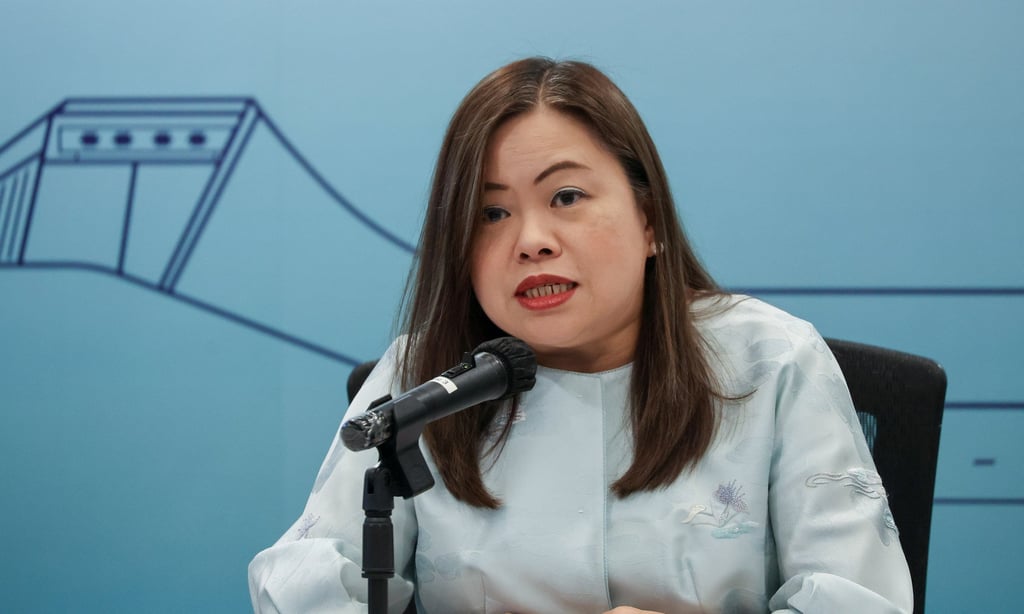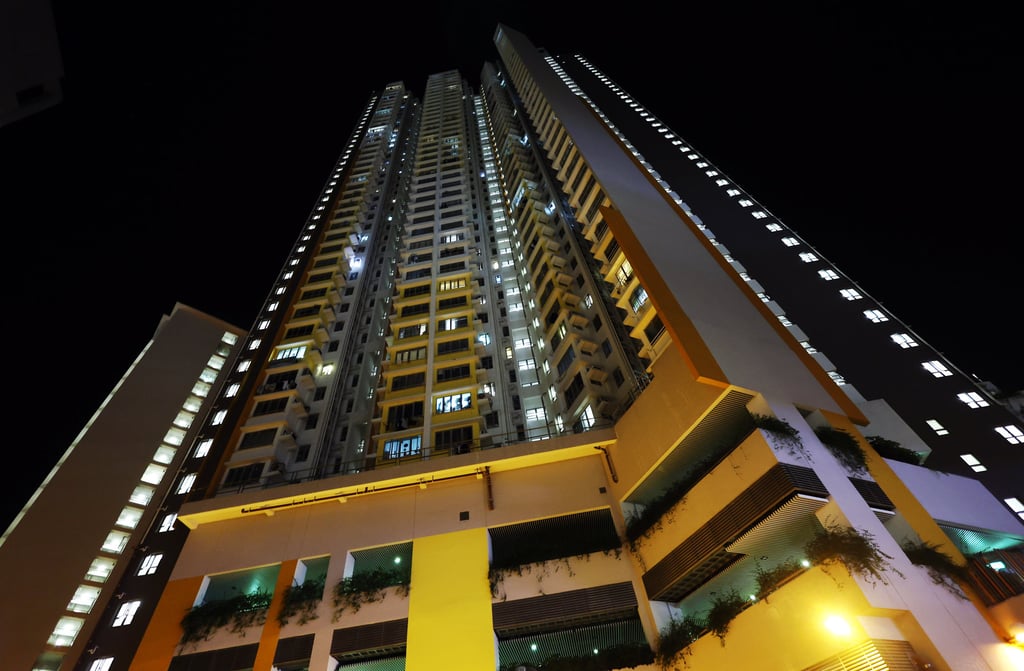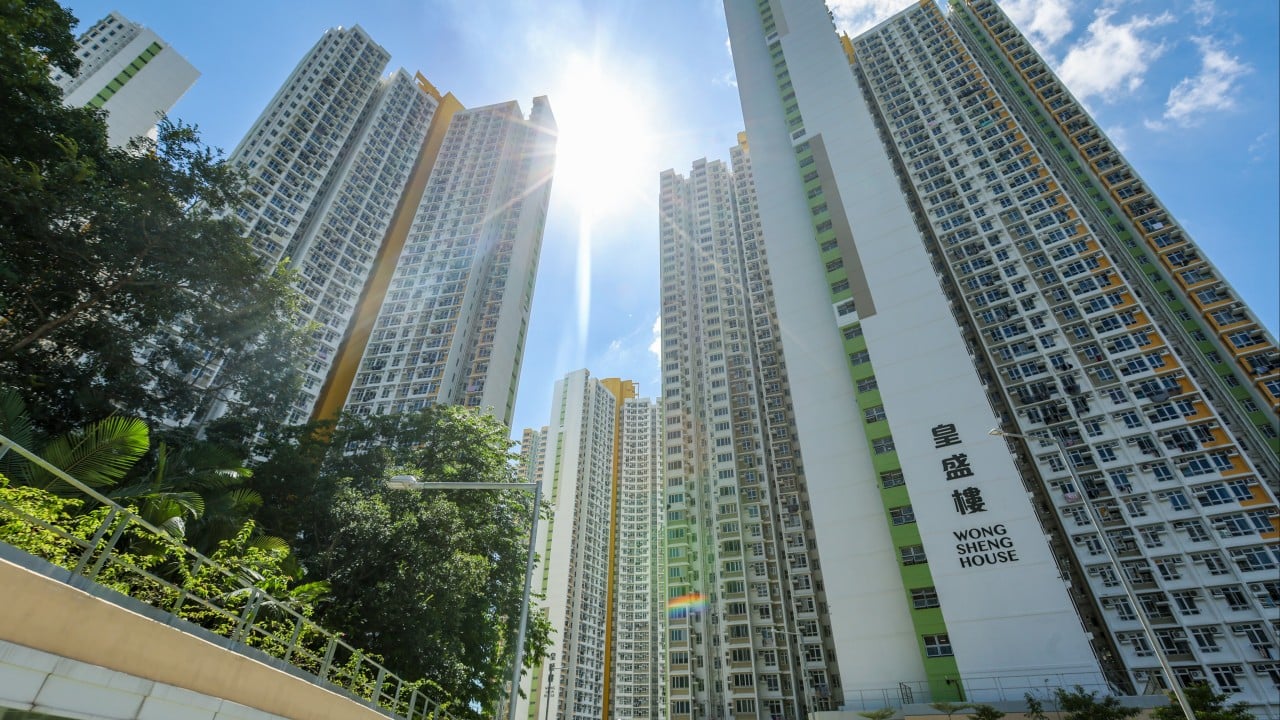Explainer | How is Hong Kong clamping down on abuse of public housing? The Post outlines the tactics
The scale of abuse of the Hong Kong public flats system has hit the equivalent of a medium-sized estate of about 5,000 flats over the past two years, director of housing Rosanna Law Shuk-pui revealed at the weekend.
Law, also the permanent secretary for housing, said the construction cost of the flats held by people who had breached the rules amounted to HK$5 billion (US$640 million).
She highlighted on Saturday an example where she had spotted a new car at Queen’s Hill Estate in Fanling with Hong Kong and mainland Chinese licence plates, only available to a select few, including businesspeople, political elites and philanthropists.
The Post here examines how the authorities have cracked down on “well-off tenants” living in the city’s subsidised public flats and outlines further steps that will be taken to catch breaches.
1. Why did the government step up checks?
The city was alerted to the possibility of widespread abuse of public housing flats after Kwong Kau, the former father-in-law of murdered model Abby Choi Tin-fung, was discovered last year to have owned a luxury home while also buying a subsidised flat.
Kwong, charged alongside his two sons with Choi’s murder, was found to be listed as the owner of a 291 sq ft home in Sheung Man Court in Kwai Chung less than a year after his registration as the owner of a 1,820 sq ft flat in exclusive Kadoorie Hill in November 2019.
His subsidised flat was sold under the Home Ownership Scheme for HK$2.18 million in July 2020 and had a HK$2.1 million mortgage.
That suggested Kwong had only made a down payment of HK$110,000, or 5 per cent of the flat’s value, the minimum required for so-called Green Form applicants.
Many such applicants live in public rental housing.
Housing authorities later pledged to introduce stricter checks on income and asset levels of public rental housing tenants in a bid to avoid abuse of resources and close a loophole that allowed well-off tenants to buy subsidised flats.

2. What are ‘well-off tenants’ in public housing?
Applicants must comply with government monthly income and family asset limits to qualify for tenancy in a public rental flat.
The income cap for a one-person applicant is HK$12,940 a month, with a maximum family asset limit of HK$286,000.
The maximum monthly income for a family of three is HK$24,740 and assets cannot exceed HK$505,000.
Tenants whose income is above the limits by five times or whose assets exceed the limit by 100 times are asked to return their flats.
Tenants who own any private domestic property also have to leave the public rented sector, irrespective of income and asset levels.
One couple, “Mr and Mrs Ho”, a 76-year-old man and Hong Kong public housing resident and a 43-year-old divorcee from the mainland have also attracted attention because of their status as “well-off tenants”.
The couple came under the spotlight after they flaunted extravagant gifts to Mrs Ho on prime time television as they discussed their whirlwind romance and marriage.
The gifts shown on television included a Rolex watch and a diamond ring said to have cost a total of more than HK$200,000.
The Housing Department later launched an investigation into the couple’s finances and suspected ownership of property on the mainland.
Law later told a radio show that Mr Ho was not a registered tenant of the flat, so should not be living in it.

3. How will the checks work?
All public housing tenants will have to make income and asset declarations every two years.
Only tenants who had lived in their flats for more than 10 years were expected to make declarations under the previous rules.
Law said her staff would now also be on the lookout for expensive vehicles in the car parks of public housing estates in a bid to detect owners who may not be eligible for a discounted rental flat.
A scheme which encourages property management and cleaning companies to report tenants suspected of abuse of the rules was introduced last September.
Another proposal to encourage legitimate tenants to act as whistle-blowers on neighbours suspected of breaches of the regulations is still under consideration.
4. What are the results so far?
Almost all of the 250,000 household tenants who have lived in public housing for 10 years or more completed income and asset declarations by August.
The crackdown was launched in April and about 1,800 tenants have vacated flats of their own accord.
Authorities also issued warning letters to 70 households who had failed to make their declaration by the deadline.
Refusal to declare income and asset limits could mean the removal of tenants from their flats.
About 5,000 flats have been repossessed from tenants whose income or assets exceeded the limits over the past two years.
These included a flat at Queen’s Hill Estate, inspected by Law, where a luxury car parked outside exposed the owner’s true wealth.
Another 12 tenants were ordered to vacate their flats after officials found they also owned property on the mainland or in Macau.


